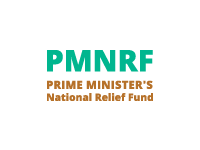A three-day Industry Meet-cum-Seminar on Biodiversity and Information on Medicinal & Aromatic Plants was organized by the Publications& Information Directorate, New Delhi during November 15-17, 1995. The seminar spread over seven scientific sessions on different aspects of Biodiversity & Conservation, Regulatory Information, and Intellectual Property Rights, provided a forum for specialists from scientific research institutions, industry, as well as regulatory authorities to exchange relevent information in a meaningful manner. About 70 participants attended the seminar.
Dr. G.P. Phondke, Director, Publications & Information Directorate, welcomed the participants at the inaugural function, expressing happiness at the overwhelming response the Seminar received from industry as well as R&D institutions. Dr.R.A.Mashelkar, Director-General, CSIR in his address appreciated the theme of the Seminar in the context of recently announced CSIR's policy on intellectual property rights. He said "India, with its rich biodiversity and great intellectual infrastructure needs to create a powerful synergy between the two" and he emphasised the role of dissemination of authentic information in "creating awareness at all levels as against the serious repercussions of misinformation".
The Chief Guest, Mr. A.K. Rungta, President, Federation of Indian Chambers of Commerce & Industry, inaugurated the seminar and released a Souvenir brought out to mark the occasion. In his inaugural address Mr. Rungta assured CSIR of the full support of the Industry. He emphasised on the need of raising the consciousness level of people so that the ecology is not damaged and use is made of what is to our advantage particularly in the area of medicinal and aromatic plants.
The first of the four sessions of the seminar Biodiversity & Conservation began with a warning note from the Chairman that we have to develop an attitude to conserve our biodiversity and not stretch this God-given bounty too far and that strategies followed to protect and preserve food crops should be extended to medicinal plants also. A presentation on the state-of-the-art of Medicinal & Aromatic Plants was made by Dr.P.Pushpangadan, Director, TBGRI, Trivandrum.
Dr. Vandana Shiva, Director, Research Foundation for S&T and Natural Resource Policy, made a presentation on "Protecting Our Biodiversity in an Age of Biopiracy". She emphasised that very stringent patent rights have to be formulated particularly in the area of Biodiversity and Medicinal & Aromatic Plants cultivation and utilization. Common intellectual rights for the world market should be framed in such a way as to exclude misappropriation and check biopiracy. Knowledge should be developed to utilize our raw materials and then we should trade raw material & the knowledge, with the other countries. Also, laws to protect our knowledge should be framed.
In the second session, a multi-disciplinary strategy for biodiversity conservation in the Western Himalyas was discussed by Prof. Akshey K. Gupta, Director, CSIR Complex, Palampur, Himachal Pradesh. In the third session, the vast diversity and genetic variability that exists in our natural ecosystems was detailed.
The fourth session highlighted the medicinal plant diversity of certain regions and the present status and future scope for the development of medicinal and aromatic crops in India. The role of a gene bank in conservation of medicinal plant diversity was discussed.
Session five was devoted to Requlatory Information on herbal medicines in India in particular, and in other countries in general.
Dr.D.B.A. Narayana, Deputy General Manager, Dabur Research Foundation, emphasized the need of strict quality control measures including clinical trials, toxicity studies, and detailed composition and dosage display, before launching a new drug.
The sixth session dealt with Trade and Marketing of herbal drugs. Dr. C.K. Atal, UN Consultant, outlined the vast export potential of crude and finished phytoproducts. Mr. J.S. Raju, Director, APEDA emphasized the importance of maintaining quality parameters for the marketing of herbal drugs. Methods to improve exports of herbal medicines were also presented.
The seventh and final session focused on the Intellectual Property Rights with special reference to medicinal and aromatic plants. Dr. M.D. Nair, Vice-President, SPIC presented his views on the topic. Mr. N.R. Subbaram, Head, Intellectural Property Management Division, CSIR, explained the details of what patents are, how a patent is filed and the various eligibility criteria for doing so. The new CSIR patent policy was also discussed.
The valedictory session was presided over by Dr. R.K. Arora, co-ordinator, Regional Office for South Asia, International Board for Plant Genetic Resources, New Delhi. Several recommendations/suggestions emerged from the deliberations of the seminar. Some of the salient recommendations are:
-
A powerful synergy between intellectual property and rich biodiversity has to be created.
-
Legal system has to be tightened up for proper protection of transfer of technology.
-
Bilateral agreement between countries is essential to avoid illegal transport of plant material.
-
Intensive bioprospecting programmes should be taken up to identify the exploitable resources based on ethnobotanical information.
-
Stringent regulatory laws for herbal medicines are mandatory for global competitiveness of Indian herbal drugs.
-
Cultivation of identified important medicinal species should be taken up in areas where they grow naturally.
-
The selected species should be studied for ecological, phenological and other aspects to develop agrotechnology for their cultivation in other areas.
-
Ethnobotanical information of such plants must be recorded before it is lost.
-
Medicinal plant gardens should be raised throughout the country.
-
Export of finished and value-added products should be encouraged.
An exhibition highlighting the theme of the seminar was inaugurated on the second day of the seminar. Participating institutions displayed live specimens of rare medicinal plants, new plant based products, and publishing houses exhibited their information products/publications relating to medicinal and aromatic plants.





















